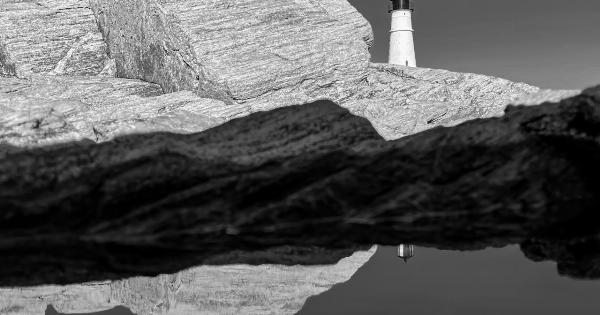Dealing with a clogged nose can be frustrating and uncomfortable. Whether it’s due to allergies, a cold, or sinus congestion, a stuffy nose makes it difficult to breathe, affects your sleep, and hampers your overall quality of life.
Fortunately, there are several effective solutions that can help you say goodbye to a clogged nose and find relief. Let’s explore some of these remedies and find out which ones work best for you.
1. Nasal Saline Rinse
Nasal saline rinses are a popular and effective remedy for a clogged nose. This simple solution involves flushing out the nasal passages with a saline solution. It helps to thin mucus and clear away any irritants or allergens.
You can prepare a saline rinse at home by mixing a half teaspoon of salt with two cups of warm water. Use a neti pot or a squeeze bottle to gently pour the solution into one nostril while tilting your head. Let the water flow out of the other nostril, and repeat on the other side. Nasal saline rinses can be done a few times a day for effective relief.
2. Steam Inhalation
Steam inhalation is another simple yet effective way to relieve a clogged nose. Inhaling warm, moist air helps to loosen mucus and open up the nasal passages. To try this remedy, boil a pot of water and remove it from the heat.
Lean over the pot, drape a towel over your head to create a tent, and breathe in the steam for about 10 minutes. You can add a few drops of essential oils like eucalyptus or peppermint for added benefits. Be cautious not to burn yourself with the hot water or steam.
3. Nasal Strips
Nasal strips are adhesive strips that are placed on the outside of the nose. They work by physically lifting the nasal passages and helping to open up the airways.
Nasal strips are often used to alleviate snoring, but they can also provide relief from a clogged nose caused by allergies or congestion. These strips are available over-the-counter and come in various sizes and strengths. Simply apply the strip across your nose before going to bed or during the day for instant relief.
4. Over-the-Counter Decongestants
If your clogged nose is due to a cold or sinus congestion, over-the-counter decongestants can provide temporary relief. Decongestant nasal sprays or oral tablets can help shrink swollen nasal tissues and reduce mucus production.
However, these medications should only be used for a few days, as long-term use can lead to rebound congestion and other side effects. It’s important to read and follow the instructions carefully and consult with a healthcare professional if you have any underlying health conditions.
5. Humidifier
A humidifier is a device that adds moisture to the air, helping to prevent dryness in the nasal passages and relieve congestion. Dry air can worsen a clogged nose, especially during the winter months or in dry climates.
A humidifier can be beneficial both while you sleep and during the day. Make sure to clean and maintain the humidifier according to the manufacturer’s instructions to avoid the growth of mold or bacteria.
6. Elevate Your Head
Raising the head of your bed or using an extra pillow can help alleviate nasal congestion by promoting drainage. When you lie down flat, mucus can pool in the nasal passages, making breathing more difficult.
By elevating your head, you encourage gravity to work in your favor and prevent excessive mucus accumulation. This simple adjustment can make a significant difference in the quality of your sleep and help you wake up with a clear nose.
7. Stay Hydrated
Drinking plenty of fluids is crucial for overall health, but it can also help relieve a clogged nose. Staying hydrated thins the mucus in your nasal passages, making it easier to clear out and reducing congestion.
Water, herbal teas, and warm broths are excellent choices to keep you hydrated and promote nasal health. Avoid excessive caffeine and alcohol intake, as they can have a dehydrating effect on the body.
8. Avoid Triggers
If you suffer from allergies, it’s important to identify and avoid triggers that can worsen your symptoms. Common allergens include pollen, dust mites, pet dander, and certain foods.
Keep your living environment clean by regularly dusting, vacuuming, and washing bedding. Consider using allergy-proof covers on your mattress and pillows to minimize exposure to allergens while you sleep. If necessary, consult with an allergist for a comprehensive allergy test and personalized treatment plan.
9. Nasal Irrigation
Nasal irrigation involves flushing the nasal passages with a saline solution using a squeeze bottle, bulb syringe, or a specially designed irrigation system known as a “nasal irrigator.” This process can help remove excess mucus, allergens, and irritants, relieving nasal congestion and improving breathing. Nasal irrigation should be done using sterile water or previously boiled water to prevent the risk of infection. It’s crucial to follow the correct technique and avoid using too much force to avoid any discomfort.
10. Seek Medical Advice
If your clogged nose persists for an extended period, is accompanied by severe pain or other concerning symptoms, it’s essential to consult a healthcare professional.
They can evaluate your condition and determine if there’s an underlying cause that requires specific treatment. Certain medical conditions like chronic sinusitis or nasal polyps may require prescription medications or even surgery to provide long-term relief.





























